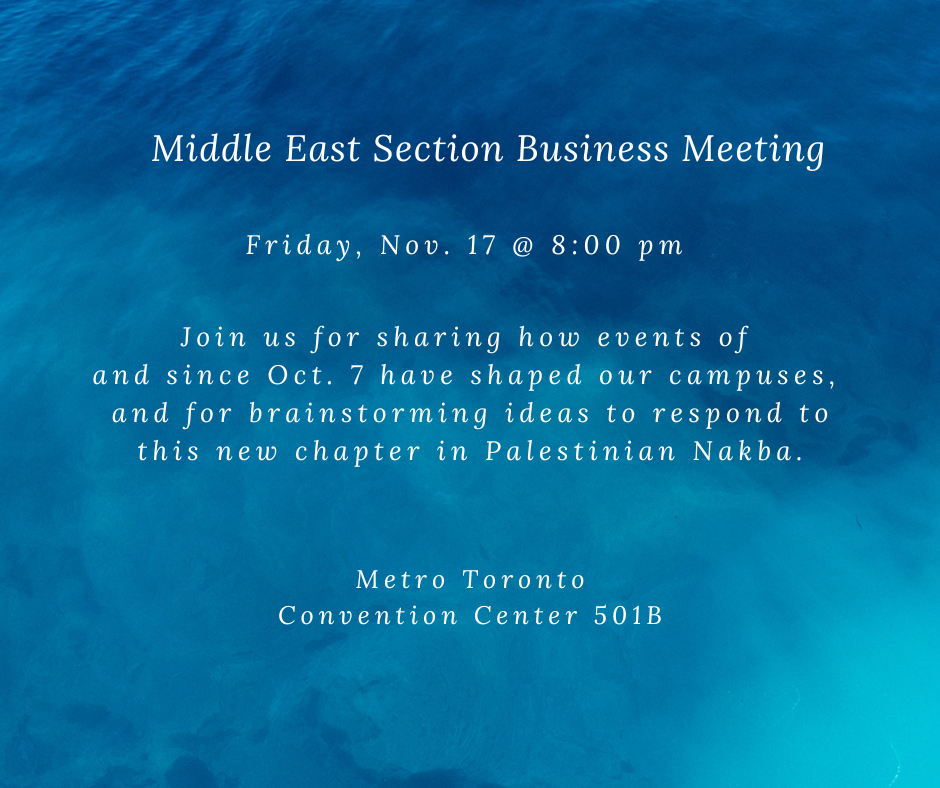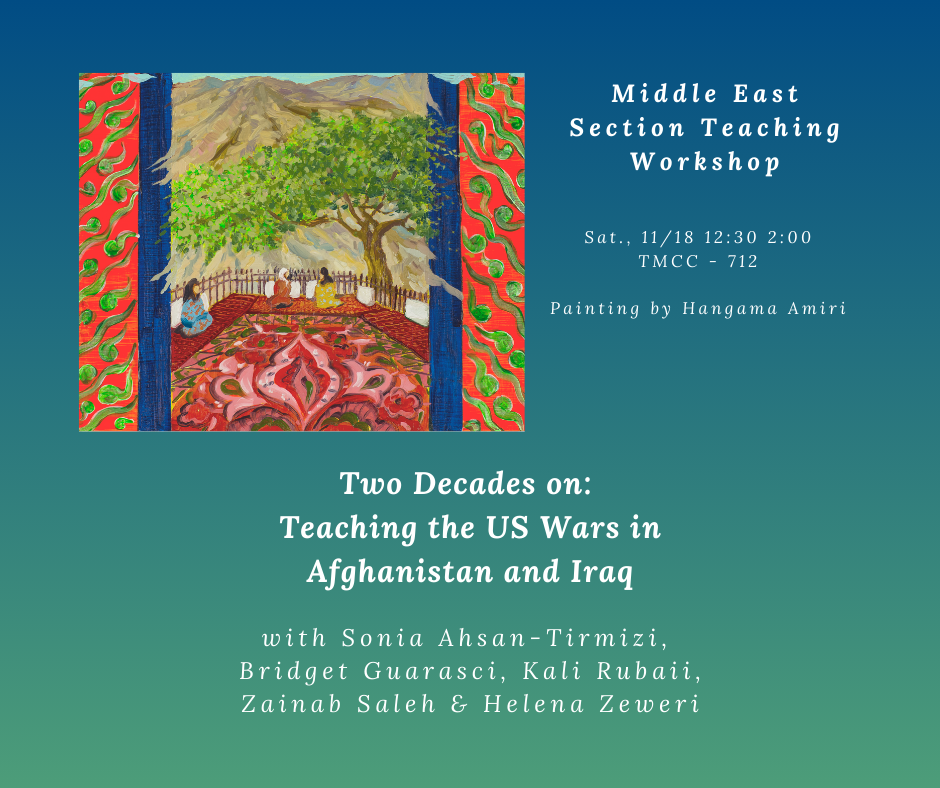The MES Board has been closely following ongoing discussions about the upcoming AAA Annual Meeting in Tampa, Florida.
Building on our March 1 discussion and on consultation with our members, which we undertook out of a commitment to democratic process with our members, the MES Board endorsed the AQA’s call for a nonbinding boycott on March 20, emphasizing the call not to register for the conference. This action reflects our solidarity with AQA and affected communities in Florida as well as our frustration with the AAA leadership in their failure to listen to and address members’ concerns at the fall business meeting and after. We confirm, building on AQA’s statement, that “AQA members feel unsafe going to Florida for a conference,” and that “Florida’s government suppresses academic freedom.” We also emphasize, drawing on the AQA statement, that a boycott sends a political message to Florida, which is “not an exceptional state” but rather a precedent-setting one regarding policies that harm LGBTQ people, immigrants, and people of color.
We also seek to preserve our ability to carry out our section’s responsibility of promoting the vital work of Middle East Anthropology and our activism within the AAA. We recognize the importance of retaining membership to preserve our voting rights in the AAA amidst unprecedented assaults on free speech and academic autonomy. Thus, many of us will maintain our AAA memberships. Along the lines of what AQA is planning, and along with their recognition that some scholars, to quote from the AQA statement, “feel a professional need to attend this year’s meeting, whether in person or online,” MES will still review and program submissions from members choosing to attend the Tampa meeting. We will also plan online activities for our section during the year.


